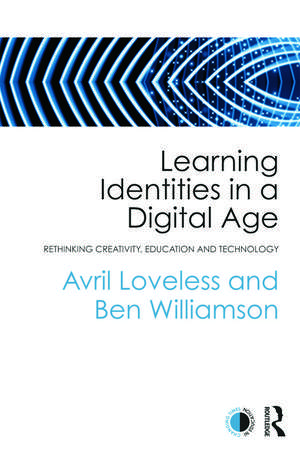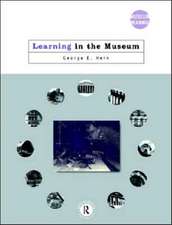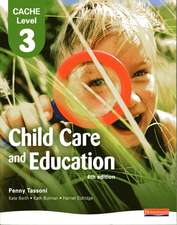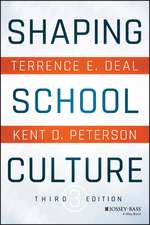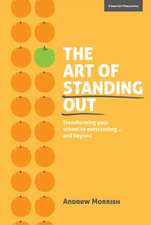Learning Identities in a Digital Age: Rethinking creativity, education and technology: Changing Times in Education
Autor Avril Loveless, Ben Williamsonen Limba Engleză Paperback – 28 feb 2013
Learning Identities in a Digital Age provides a critical exploration of how education has been reimagined for the digital future. It argues that education is now the subject of a "cybernetic" mode of thought: a contemporary style of thinking about society and identity that is saturated with metaphors of networks, flexibility, interactivity, and connectedness. This book examines how shifts in thought have translated into fresh ideas about creative learning, interactive tools, curriculum reform, and teacher identity. The text identifies how learning identities have been promoted, and position young people as networked learners, equipped for political, economic and cultural participation in the digital age.
Included in the text:
- mapping the digital age
- reconstructing the future of education
-making up digital learning identities
-assembling creative learning
-thinking with digital tools
- protoyping the curriculum of the future
-being a teacher in a digital age.
This book situates education and technology in an intergenerational and interdisciplinary conversation. It will be of interest to students, researchers and practising education professionals who want to understand the wider sociological and psychological significance of new technologies on education and learner identity.
| Toate formatele și edițiile | Preț | Express |
|---|---|---|
| Paperback (1) | 362.49 lei 6-8 săpt. | |
| Routledge – 28 feb 2013 | 362.49 lei 6-8 săpt. | |
| Hardback (1) | 1223.89 lei 6-8 săpt. | |
| Taylor & Francis – 28 feb 2013 | 1223.89 lei 6-8 săpt. |
Preț: 362.49 lei
Nou
Puncte Express: 544
Preț estimativ în valută:
69.37€ • 71.67$ • 57.70£
69.37€ • 71.67$ • 57.70£
Carte tipărită la comandă
Livrare economică 19 martie-02 aprilie
Preluare comenzi: 021 569.72.76
Specificații
ISBN-13: 9780415675727
ISBN-10: 0415675723
Pagini: 208
Ilustrații: 1 table and 1 line drawing
Dimensiuni: 156 x 234 x 13 mm
Greutate: 0.29 kg
Ediția:1
Editura: Routledge
Colecția Routledge
Seria Changing Times in Education
Locul publicării:Oxford, United Kingdom
ISBN-10: 0415675723
Pagini: 208
Ilustrații: 1 table and 1 line drawing
Dimensiuni: 156 x 234 x 13 mm
Greutate: 0.29 kg
Ediția:1
Editura: Routledge
Colecția Routledge
Seria Changing Times in Education
Locul publicării:Oxford, United Kingdom
Public țintă
PostgraduateRecenzii
"This book works on several different levels. It’s an enlightening introduction to, and application of, recent (broadly postmodern) theory, which should be of interest to a readership well beyond the field of new technology. It exemplifies a critically reflexive research approach. It’s a genealogy of how we have come to view the so-called digital age and an exploration of what these perspectives mean for teachers, students and pedagogies. And finally, it enacts intellectual collaboration and dialogue within its pages between different disciplines, research approaches and theoretical orientations."—Sara Bragg, Research in Education
Notă biografică
Avril Loveless is Professor of Education and Head of Education Research at the University of Brighton, UK, with interests in creativity and pedagogy.
Ben Williamson is Lecturer of Education at the University of Stirling, UK, with particular interests in childhood and new media, curriculum innovation, and science, technology and society.
Ben Williamson is Lecturer of Education at the University of Stirling, UK, with particular interests in childhood and new media, curriculum innovation, and science, technology and society.
Cuprins
1: Shaping Society, Technology and Learning Identity2: Mapping the Digital Age3: Reconstructing the Future of Education4: Making up Digital Learning Identities5: Assembling Creative Learning6: Thinking with Digital Tools7: Prototyping the Curriculum of the Future8: Being a Teacher in a Digital Age
Descriere
The book makes a distinctive contribution to the current debates about ‘new times and educational futures’, in that it adopts a ‘generational conversation’ between the authors.
